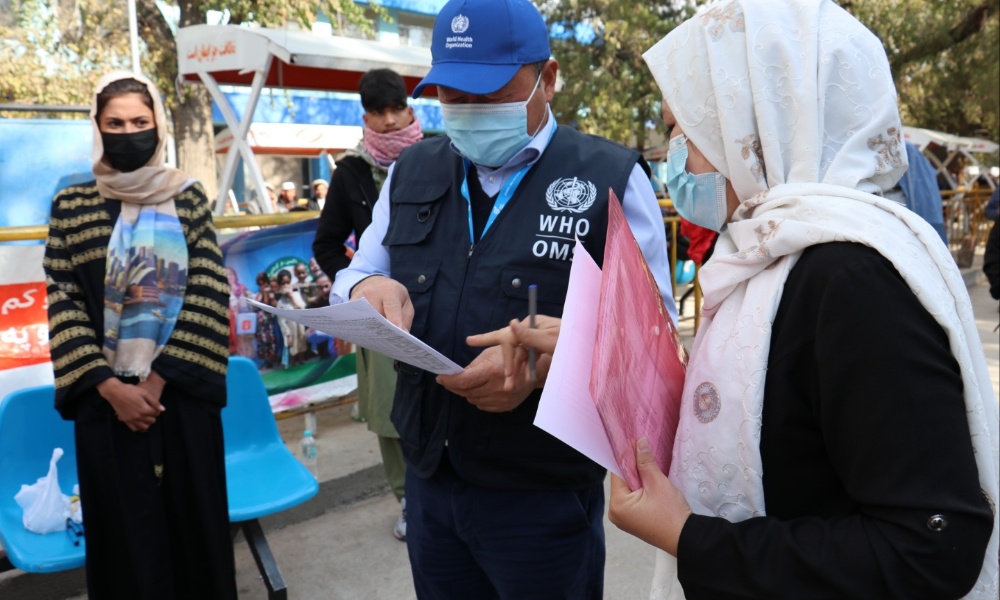Health
New injection could ‘revolutionize’ treatment of high blood pressure

Drug trials are currently underway in the UK in what some experts have said is a huge breakthrough in treating high blood pressure. Just one injection every six months could lower high blood pressure, trial results suggest.
The new drug, zilebesiran, developed by US-based company Alnylam, is given as an injection rather than in traditional pill form.
High blood pressure, or hypertension, rarely has noticeable symptoms. But if untreated, it increases your risk of serious problems such as heart attacks and strokes.
Persistent high blood pressure can increase your risk of a number of serious and potentially life-threatening conditions, such as:
heart disease
heart attacks
strokes
heart failure
peripheral arterial disease
aortic aneurysms
kidney disease
vascular dementia
The Daily Mail reported that for the drug trials, 107 patients with hypertension were recruited to take part – 80 received a single injection of zilebesiran under the skin, while 32 received a placebo containing no active ingredients.
Five patients who initially received the placebo were later moved to zilebesiran.
Analysis revealed patients who received zilebesiran experienced a substantial reduction in systolic blood pressure – the force with which the heart pushes blood out and round the body – which lasted up to six months.
On average, systolic blood pressure lowered by over 10mmHg at a 200mg dose or more of the drug, and more than 20mmHg at the highest dose of 800mg.
A drop of this size can take someone with high blood pressure to within a much safer range.
Blood pressure naturally goes up and down throughout the course of the day, making it difficult to treat.
But the study found that the drop in blood pressure seen in patients who were treated with zilebesiran was consistent over 24 hours.
Health
Global organizations warn of health crisis due to aid cuts in Afghanistan

Global organizations are raising alarms about the impact of aid cuts on Afghanistan’s health sector and the reduction in funding for humanitarian organizations operating in the country.
UN-affiliated bodies have stated that the complete suspension of aid from the United States and the reduction of the 2025 budget could lead to the closure or suspension of nearly 2,000 healthcare centers across Afghanistan.
The United Nations Office for the Coordination of Humanitarian Affairs (OCHA) has further warned that if only 25 percent of the required funding is provided, 7 million out of the 9.3 million people in need of medical services will be left without access to healthcare.
The report highlights that without immediate and sufficient funding, child mortality rates could rise sharply, as malnutrition remains one of the leading causes of death for children under the age of five.
The World Food Programme (WFP) has also warned that Afghanistan is facing a severe malnutrition crisis among children, with the number of malnourished children expected to reach 3.5 million by 2025.
Recent reports from the WFP reveal that 8 out of 10 families in Afghanistan are unable to afford a sufficient diet, and 3 out of 4 families are being forced to borrow money to purchase basic food items.
UN agencies have stressed the urgent need for the international community to address the humanitarian crisis in Afghanistan and provide the necessary aid.
This comes after Afghanistan’s Ministry of Economy dismissed reports from some international organizations about the growing poverty in the country, labeling them as exaggerated and far from reality.
Health
Health minister meets with Qatari envoy over building of 400-bed hospital in Kandahar

The Ministry of Public Health has announced that Noor Jalal Jalali, the acting public health minister, met with Murdif Al-Qashouti, the Chargé d’Affaires of the Qatari Embassy in Kabul, to discuss the construction of a planned 400-bed hospital by Qatar, the provision of equipment for hospitals, and the enhancement of the capacity of health workers in Kandahar province.
According to a statement, the Acting Minister of Public Health emphasized the importance of improving the capacity of health workers and equipping hospitals with standard facilities to better address patients’ needs and provide essential health services. He considers Qatar’s cooperation to be crucial.
In this meeting, Al-Qashouti assured the IEA of Qatar’s commitment to supporting various health sectors in Afghanistan.
In November 2023, the Ministry of Public Health had announced that Qatar planned to build a 400-bed hospital in Kandahar. In September 2023, reports also emerged about Qatar Charity’s commitment to constructing this hospital.
However, Qatar has not yet started the actual construction of the hospital.
International organizations have repeatedly warned that attention must be given to Afghanistan’s health system, as the country cannot effectively manage patients and combat infectious diseases such as polio and tuberculosis without the support of global organizations.
Health
Majority of WHO-supported facilities in Afghanistan risk shutdown by June
As of 4 March 2025, 167 health facilities had shut down due to funding shortages, cutting off lifesaving medical care to 1.6 million people

The World Health Organization (WHO) in Afghanistan is deeply concerned that funding shortages could force the closure of 80 percent of WHO-supported essential health care services across the country.
Millions of people, including vulnerable populations such as women, children, the elderly, the displaced and returnees, will be left without access to critical medical care, the organization said in a statement.
As of 4 March 2025, 167 health facilities had shut down due to funding shortages, cutting off lifesaving medical care to 1.6 million people across 25 provinces.
WHO warned that without urgent intervention, another 220 facilities could close by June 2025, leaving an additional 1.8 million Afghans without access to primary health care.
In the worst affected regions – Northern, Western and Northeastern Afghanistan – more than a third of health care centres have shut down, raising alarms about an imminent humanitarian crisis.
“These closures are not just numbers on a report, they represent mothers unable to give birth safely, children missing lifesaving vaccinations, entire communities left without protection from deadly disease outbreaks,” said WHO Representative and Head of Mission in Afghanistan Dr Edwin Ceniza Salvador.
“The consequences will be measured in lives lost.”
Afghanistan is already battling multiple health emergencies, including outbreaks of measles, malaria, dengue, polio and Crimean-Congo haemorrhagic fever.
Without functioning health facilities, efforts to control these diseases are severely hindered. Over 16 000 suspected measles cases, including 111 deaths, were reported in the first two months of 2025. With immunization rates at critically low levels (only 51% for the first dose of the measles vaccine and 37% for the second), children are at heightened risk of preventable illness and death.
While some donors continue to support Afghanistan’s health sector, funding has been significantly reduced as development aid priorities have shifted. The needs, however, remain immense, and current support is not enough to sustain critical health care services for millions of Afghans, WHO stated.
“This is not just about funding. It is a humanitarian emergency that threatens to undo years of progress in strengthening Afghanistan’s health system,” said Salvador.
“Every day that passes without our collective support brings more suffering, more preventable deaths and lasting damage to the country’s health care infrastructure.”
-

 Business4 days ago
Business4 days ago36 mining contracts inked over the past year: Mines ministry
-

 Latest News4 days ago
Latest News4 days agoDried fruit market in Herat booms ahead of Eid-al-Fitr
-

 Regional4 days ago
Regional4 days agoPowerful quake in Southeast Asia kills several, Myanmar declares state of emergency
-

 Latest News4 days ago
Latest News4 days agoUS may ask for military equipment left behind in Afghanistan: Trump
-

 International Sports4 days ago
International Sports4 days agoLucknow’s six-hitting machine Pooran justifies top order slot
-

 Latest News3 days ago
Latest News3 days agoMore than 70,000 Afghans returned home in third week of March: IOM
-

 Latest News4 days ago
Latest News4 days agoNegotiations with Afghanistan are the only way forward: Pakistan’s ex-PM Khan
-

 Health3 days ago
Health3 days agoGlobal organizations warn of health crisis due to aid cuts in Afghanistan
























